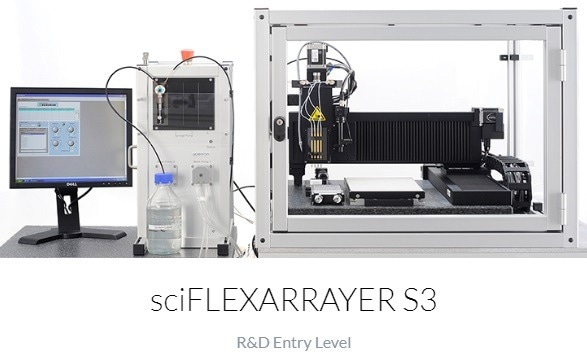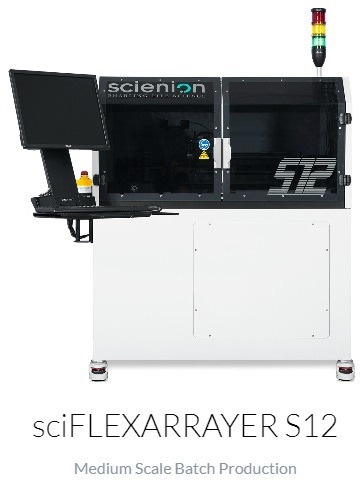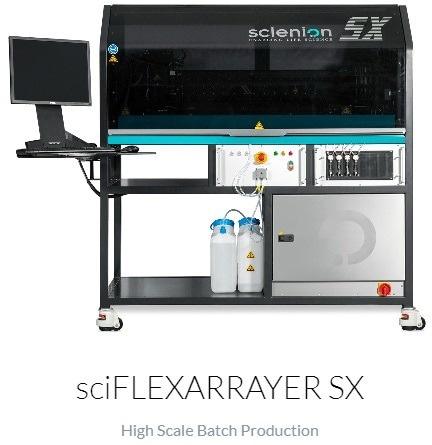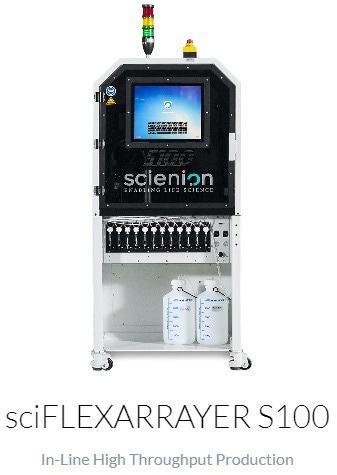Overview
The sciFLEXARRAYER from Scienion is known to be the ultra-low volume dispensing system available for R&D and manufacturing.
Introduction
The sciFLEXARRAYER product line constitutes the ideal tool for automated ultra-low volume liquid handling of several types of samples (such as biological, nanoparticle, organic, and dyes) in genomics, diagnostics, proteomics, and technical applications.
Besides, as a result of the inert nature of the glass capillaries, it is a perfect tool for miniaturized chemistry applications, such as in materials and polymer research.
Just within seconds, liquid volumes ranging between 10 pL and 100 mL could be dispensed onto nearly any target substrate.
All sciFLEXARRAYER systems could be fitted with both sciDROP NANO and sciDROP PICO technology in a multichannel configuration.
Microarray spotter. Printing into multiwell plate. Microdispenser for multiplex ELISA
Piezo dispensing technology printing into 96-well plates. Video Credit: Scienion
From early research to high throughput manufacturing
The sciFLEXARRAYER is available with four well-established versions, fulfilling the requirements of the customers from previous research to high throughput manufacturing:

Image Credit: Scienion

Image Credit: Scienion

Image Credit: Scienion

Image Credit: Scienion
sciFLEXARRAYER is a key tool on all of our projects, for depositing an enzyme onto the surface of an electrode, or most challenging we use it to deposit onto the surface of a microneedle array. Exactly the right volume, in exactly the right place.”
Tony Cass, Professor, Department of Chemistry, Imperial College London
Prof. Cass talks about his research and how they use SCIENION technology to develop new biosensors
Professor Tony Cass, at Imperial College London, focuses his research on using engineered proteins and nucleic acids in micro-and nano-structured materials and devices for both clinical and environmental analysis. Video Credit: Scienion
The main strength of the sciFLEXARRAYER is that it allows us to dispense sub-nanoliters amount of volume on our substrates, so we have reproducibility on the strips we prepare.”
Dr Nikolas Daskalakis, Scientific Consultant, BioNano Consulting
Dr. Nikolas Daskalakis (BioNano Consulting) to develop medical diagnostic devices with SCIENION
Video Credit: Scienion